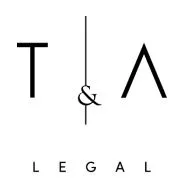- in United States
- within Tax, Government, Public Sector and Real Estate and Construction topic(s)
- with readers working within the Media & Information, Retail & Leisure and Law Firm industries
Protecting your Ideas: An Entrepreneur's Guide to Trademarks, Copyrights and Patent in Nigeria
Introduction
Intellectual property (IP) refers to creations of the intellect or mind that are exclusively owned by their creators and protected by law against unauthorised use. Intellectual property rights (IPRs) provide legal protections that grant individuals or entities exclusive control over the use and distribution of their creations for a specified period. These protections serve to incentivise innovation, creativity, and the dissemination of knowledge by ensuring that creators can benefit from their intellectual efforts.
IPRs in Nigeria are transferable through assignment, testamentary disposition, or operation of law. The legal framework governing intellectual property in Nigeria includes statutes and regulatory bodies designed to protect various forms of intellectual property, such as copyright, trademarks, patents, industrial designs, and trade secrets.
What are the Categories OF IP Rights in Nigeria?
There are 5 major IP rights recognised and protected under Nigerian law:
Copyrights
Copyright protection in Nigeria covers literary, musical, artistic, and audiovisual works, including sound recordings and broadcasts. The protection of copyright in Nigeria is primarily governed by the Copyright Act 2022, along with several international treaties and conventions to which Nigeria is a party. Other local legislations governing copyrights in Nigeria include:
- Copyright (Collective Management Organisations) Regulations, 2007; and
- Cybercrimes (Prohibition, Prevention, Etc.) Act, 2015;
Protection of copyrights is automatic upon creation and does not require formal registration. However, registration with the Nigerian Copyright Commission (NCC) can serve as prima facie evidence in legal disputes so it is advisable to do so
Copyright protects original works in the literary and artistic fields, provided they are fixed in a medium that allows them to be reproduced or communicated.
Examples of protected works include:
- Literary works such as novels, short stories, poems, plays, computer programs (e.g source and object codes), letters, encyclopedias, and law reports.
- Artistic works like paintings, drawings, maps, plans, woodcuts, architectural designs, sculptures, and other works of craftsmanship.
- Musical works, including musical scores and compositions.
- Cinematographic films.
- Sound recordings.
- Broadcasts.
The creator of a literary, artistic, or musical work is entitled to copyright protection for the duration of their lifetime and for 70 years following their death. For works such as films, sound recordings, and performances, copyright protection lasts for 50 years from the date they were first published. Once the period of protection ends, the work enters the public domain, allowing third parties to use it freely without seeking permission.
The following are, however, not eligible for copyright protection:
- Ideas, processes, systems, methods, and principles;
- Official government texts, including legislative and administrative materials;
- Official state symbols such as flags, anthems, and banknote designs.
Copyright Infringement
A violation of copyright occurs when an unauthorised party reproduces, distributes, or publicly performs a protected work without permission. Acts constituting infringement include:
- Importing unauthorised copies of a copyrighted work;
- Selling or renting an infringing copy;
- Using premises for copyright infringement;
- Publicly performing a work without authorisation.
Legal action for infringement may be initiated by the copyright owner, an assignee, or an exclusive licensee before the Federal High Court of Nigeria.
Please note that holding a copyright in Nigeria does not automatically grant you copyright protection in other countries. However, because Nigeria is a member of certain international copyright treaties and conventions, such as the Berne Convention, works created by Nigerian citizens are also protected in the territories of other member countries that are parties to these agreements.
Trademark
Trademarks are primarily protected under the Trademarks Act, 2004 (the “Act”) and administered by the Nigerian Trademarks, Patents, and Designs Registry (the “Registry”). They serve to distinguish goods or services of one entity from another and provide exclusive rights upon registration.
Under the Act, any device, brand, heading, label, ticket, name, signature, word, letter, colour, mark, numeral, or any combination thereof may be registered as a trade mark. Three dimensional marks are also eligible for trade mark protection.
The Registry will however not register any marks that are considered deceptive or scandalous, or designs or marks that are likely to cause confusion.
Registration Process
To register a mark, one must first determine the trademark class where such mark will be registered under. The Nice Classification provides some guidance in determining where one may register a mark, as it has various class categorisations for different goods and services.
To obtain a trademark, an availability has to be done to confirm that the mark has not already been registered in the applicant's class of choice.
Once it has been confirmed that the mark is available, an application will then be submitted to the Registrar of Trademarks for the registration of the mark. If approved, the mark is published in the Trademarks Journal and some time given for any objections to its registration by interested parties. If no objections are raised within two months, the applicant may proceed with the final registration of the mark.
A registered trademark remains valid for seven years and can be renewed indefinitely in accordance with the Act.
Patent
Patent protection in Nigeria is primarily governed by the Patents and Designs Act 2004, granting inventors exclusive rights for up to 20 years.
To be patentable, an invention must be:
- New (not previously disclosed), results from an inventive activity, and capable of industrial application; or
- If it constitutes an improvement upon a patented invention and is new, results from an inventive activity and is capable of industrial application.
Patents cannot be granted for inventions contrary to public order or morality, or for biological processes related to plant and animal life.
It is important to note that patent rights are granted to the first person to register the invention, not necessarily the true inventor. Consequently, another person may register the inventive work of another, whether by agreement or otherwise.
Where an invention is created under an employment contract, the employer retains the patent rights unless otherwise agreed. Patent holders can prevent third parties from manufacturing, selling, or using the patented invention without authorisation.
Industrial Design
An industrial design refers to a combination of lines, colors, or three-dimensional shapes intended for mass production. Protection is granted if the design is novel and does not contradict public order or morality.
Industrial designs must be registered with the Patent & Designs Registry. The initial protection period is five years, renewable for two additional five-year terms, totaling 15 years of protection.
Trade Secrets
A trade secret consists of confidential business information that provides a competitive advantage. Although Nigeria does not have specific legislation governing trade secrets, protection is enforced through non-disclosure agreements (NDAs) and contractual obligations.
This is why it is the custom of businesses and persons entering into negotiations that may involve the disclosure of certain business information, processes, accounts, designs, codes, and other forms of confidential information to execute NDAs before the commencement of negotiations.
It is important to ensure that adequate provisions are included in an NDA to ensure the protection of your trade secrets and how they may be disclosed when necessary.
Enforcement of IP Rights
Enforcement of intellectual property rights in Nigeria is carried out through:
- Civil litigation before the Federal High Court, which has exclusive jurisdiction over intellectual property disputes;
- Criminal prosecution in cases of counterfeiting and piracy; and
- Regulatory enforcement by agencies such as the Nigerian Copyright Commission and the Trademarks, Patents, and Designs Registry.
Economic Benefits of Protecting Intellectual Property
Securing IP rights provides several economic advantages, including:
- Market Exclusivity – Trademarks and patents help establish brand identity and prevent competitors from copying unique products or services.
- Monetisation Opportunities – Intellectual Property are assets that can be licensed or sold, generating significant revenue for the owner.
- Enhanced Business Valuation – Strong Intellectual Property portfolios increase a company's value, attracting investors and potential buyers.
- Legal Protection Against Infringement – Registration grants legal recourse against unauthorised use, preserving financial interests in the Intellectual Property.
Conclusion
Intellectual property rights play a crucial role in fostering innovation, protecting creativity, and promoting economic growth. Nigerian laws provide a framework for protecting various intellectual assets, ensuring that creators and inventors can benefit from their work while deterring infringement.
Compliance with legal registration and enforcement mechanisms remains essential for individuals and businesses seeking to safeguard their identity, brand and intellectual property rights within Nigeria's legal landscape.
The content of this article is intended to provide a general guide to the subject matter. Specialist advice should be sought about your specific circumstances.
[View Source]


